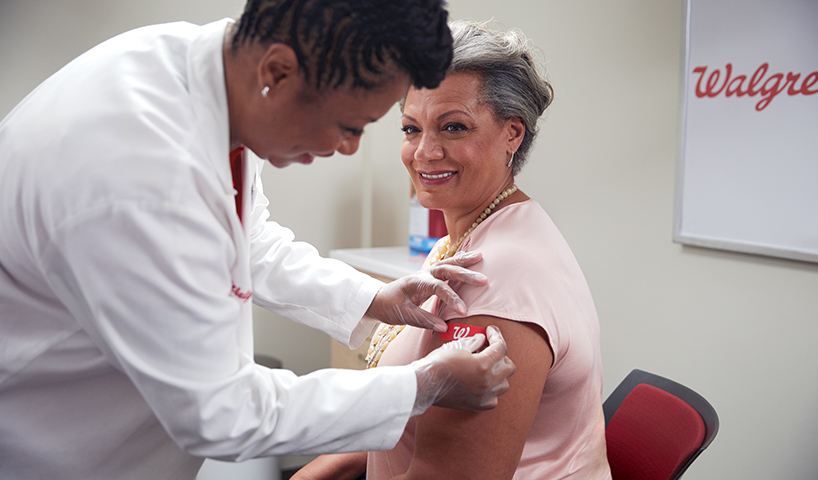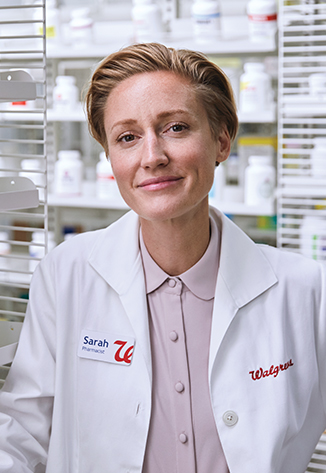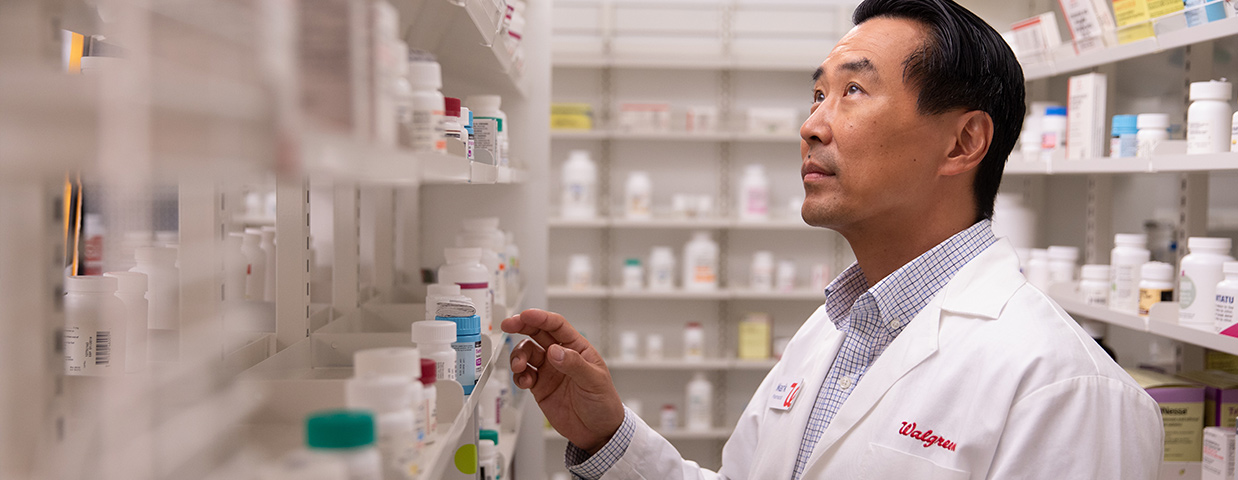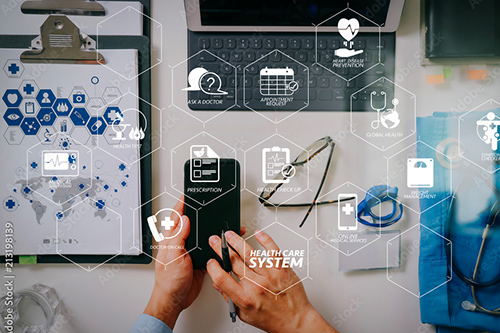Pharmacists
Creative approaches to closing gaps and improving patient care
As healthcare has evolved and digital technology has advanced, the traditional role of the pharmacist behind the counter has changed. With more treatment options, pharmacists are actively delivering direct care and guidance to patients.
The pandemic’s role in this shift is evident. Even before the COVID-19 pandemic, the healthcare delivery system in the U.S. was already under significant strain, facing:
- A looming shortage of primary care physicians (PCP)
- A rapidly aging and more chronically ill population
- Unequal access for traditionally underserved and at-risk communities
- Ever-spiraling costs
Pharmacists are uniquely positioned to help
As a known and trusted local resource1,and among the most accessible2 of all medical professionals, pharmacists are ready to deliver that critical help. Far more than simply prescription-fillers and dispensers of general advice for taking medication, pharmacists have deep, specialized knowledge and experience, which is critical in providing quality patient care through collaboration with traditional providers.
Deep knowledge, clinical expertise
Since 2003, all pharmacy school graduates have earned a doctor of pharmacy (PharmD) degree, which includes a similar amount of clinical classroom training as medical doctors (MDs).3 Importantly, pharmacists’ unique position in the medical ecosystem at the nexus of patients, providers, health systems and plans offers unrivaled visibility all along the patient journey. In addition, pharmacists interact with many types of physicians and medical professionals—primary care, specialty care, emergency care, therapists, nutritionists, dentists and others—giving pharmacists even deeper insight into the healthcare continuum.
The continued access and visibility offer pharmacists numerous potential opportunities to support, complement and extend both primary and specialty care services. These could include:
- Performing basic diagnosis of minor illnesses
- Testing for and managing some mental health conditions
- Supporting the management of complex and chronic illnesses such as cancer and HIV
Primary care providers surveyed agreed that pharmacists are well-suited to fill many common gaps in care:4
82%
agree for adult vaccinations
62%
agree for adherence programs
58%
agree for health screenings
51%
agree for regular touch points with chronic patients on medication
82%
agree for adult vaccinations
62%
agree for adherence programs
58%
agree for health screenings
51%
agree for regular touch points with chronic patients on medication

Better access to care
We’re already seeing community pharmacies becoming an attractive choice for consumers as access points for care. Performing vaccinations, such as the flu or COVID-19, is an established, high-profile example. But many additional services are becoming routine at pharmacies as well. Testing for COVID-19 and other conditions as well as education on protective health measures are all being provided, which is an especially appealing option for those with little access to or without a PCP.
Pharmacists, empowered by data, are key to lowering the cost of care
Capitalizing on the unique position pharmacists occupy—along with the expertise, accessibility and trust that pharmacists have earned—offers a smarter path forward.
Through analytics-led insights, pharmacists can extend care to support adherence and promote health equity which may help lower costs for insurers and patients while improving patients’ quality of life. Data insights can reveal at-risk patients, identifying social determinants of health (SDOH) and other potential barriers to care that may be keeping them from adhering to therapy. Many of these can then be addressed by the pharmacist and staff.

The future forward
Qualified by education and experience, empowered by data and deeply embedded in the healthcare ecosystem, today’s pharmacists are in an ideal position to bring about significant change for many of the challenges facing healthcare today.
Supporting pharmacists and enabling them to practice at the top of their license offers patients, providers, health systems and health plans a responsible and realistic answer for a system under terrible strain. As they have throughout the pandemic, pharmacists are filling gaps in care, but they need far more support.
Transformation is demanded, spanning new business and reimbursement models, creative approaches to employee staffing and training, and the implementation of innovative technology. In some cases, legislative action is required to expand what pharmacists are authorized to do. With the need already massive and ever-growing, the time is right for focusing on the value the pharmacist drives.
That’s why Walgreens Health has a care model where pharmacists:
- Provide convenient access to health screenings, coaching and advisory services
- Empower members on their health journey by establishing lifetime relationships and solving member problems to improve health outcomes
- Help to close care gaps, foster safety and quality measures to enable virtual care for diagnostics and treatment when necessary
- Effectively manage chronic conditions by collaborating with an extended, connected support team
- Offer personalized, around-the-clock care to address members’ clinical and nonclinical needs
To learn more about Walgreens Health and the changing role of the pharmacist, download the full white paper and visit our website.









